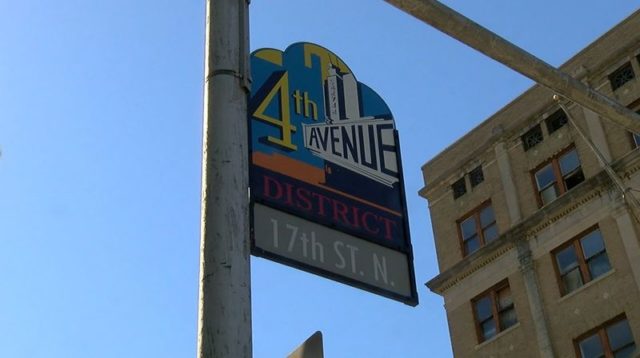urbanimpactbirmingham.org
The 2019 Taste of 4th Avenue Jazz Festival will take place on August 24 in the Historic 4th Avenue Business District Downtown Birmingham on 4th Avenue North between 18th and 16th street from 3 p.m. – 10 p.m.
Because of the continued success of the festival, Urban Impact has created a separate 501 (c) (3) nonprofit organization; Taste of Fourth Avenue, Inc. This new organization will produce the Taste of 4th Avenue Festival and accommodate the opportunities to create and produce more cultural and educational events in the historic district and bring vibrancy around the National Monument throughout the year.
Last month, city and state officials gathered in the Business District to kickoff neighborhood revitalization efforts with Main Street Alabama, a nonprofit organization that will provide goal setting, work planning, economic development strategies and other services, related to downtown development.
As a hub for black commerce and culture during the days of segregation, the Business District is one-of-a-kind. The district set the scene for place makers of yesterday and stands today as a testament to the resilience of a people. Seeking to celebrate the spirit of the district, Urban Impact, Inc. and the Alabama Jazz Hall of Fame, inspired by the “Taste of Chicago,” launched the first Taste of 4th Avenue Jazz Festival in 2003. Now approaching its 16th year, this one-day event has become a popular summer staple and continues to be presented at no cost to attendees.
Urban Impact and the City of Birmingham promise a wide array of activities and fun for the whole family. It will feature a main stage with Regan Whiteside and Birmingham’s Eric Essix. Also, there will be a Health and Wellness Village that will include wellness checks accessible for all. A kid’s zone for children with bounces, train rides, hands- on experiments courtesy of the McWane Science Center.
History
It was in the early 1900s when Jim Crow segregation laws were in effect, that African Americans were not welcomed into white establishments. Angry and wanting to create a solution that would impact the neighborhood, a few African Americans decided to establish their own businesses. The neighborhood along 4th Avenue from 15th to 18th Street North developed as the City of Birmingham’s black business district. From black-owned banks, churches, doctor offices, movie theaters, nightclubs, black businesses flourished all through the 1960s. Some of the known businesses were the Champion Theater, Bohemian Bakery on Coplon’s corner, the Dunbar Hotel, and the Alabama Penny Savings Bank. In the 1960s, the 4th Avenue District was the African-American mecca. It was a vibrant commercial corridor that hosted entrepreneurs like business mogul A.G. Gaston and newspaper publisher Emory O. Jackson. However, once segregation laws were deemed illegal, the energy around the district changed. Many of the businesses set up shop in different parts of town to attract more to diversify their customer base. While in decline, the district still had a core of businesses, some of which are still in operation today.
Today
Refusing to let a piece of history disappear, in 1980, Urban Impact, Inc. was founded with its sole mission to preserve and redevelop the Historic 4th Avenue Business District. In the early 20th century, over 30 percent of black businesses in Birmingham were concentrated in the 4th Avenue Business District. A direct initiative of the first Richard Arrington Administration, the early work of Urban Impact was successful in the areas of historic preservation and commercial revitalization with the help of the newly minted Fourth Avenue-Area Merchants Association (F.A.M.A.).
From community programs that focus on education, entrepreneurship, and financial literacy, and events such as the Taste of 4th Avenue Jazz Festival, much has been accomplished and the greater 4th Avenue Business District, listed on the National Register of Historic Places, includes the Alabama Jazz Hall of Fame, The Colored Masonic Temple, Kelly Ingram Park, The Birmingham Civil Rights Institute, the Sixteenth Street Baptist Church, St. Paul United Methodist Church, the A.G. Gaston Motel, the Pythian Temple, and a number of other historical district sites.
Today, the 4th Avenue Business District is one of the few remaining black business districts that remain intact in Alabama and the southeastern United States. The district covers 18th Street North to 15th Avenue North, Abraham Woods Boulevard to 2nd Avenue North.
Spectators will not only be able to enjoy the music but also enjoy food vendors and visit the local businesses in the 4th Avenue Business District from the Historic Green Acres Café, to Ferrill’s African Wear, to the young and urban clothing store FLY V.
For more information visit www.4thavenuejazz.org.




